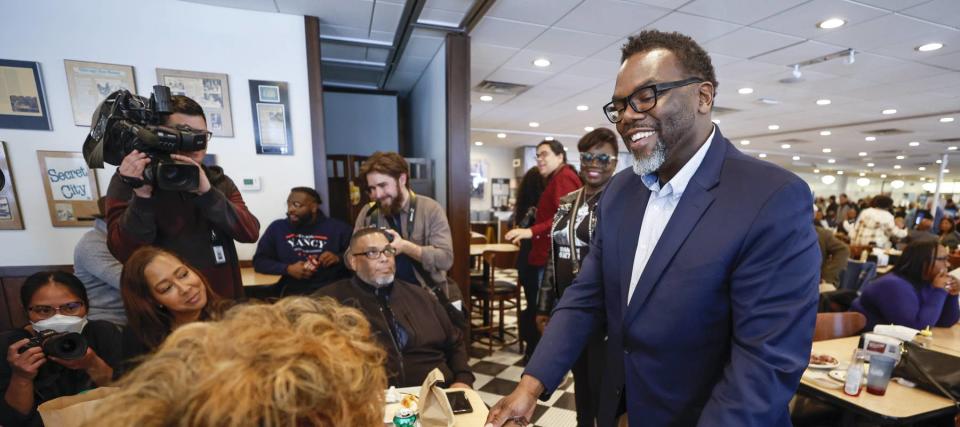'Power to communities': Chicago considers city-owned grocery store to address 'food deserts' after giants like Walmart and Whole Foods shutter stores

Chicago is exploring the idea of creating a city-owned grocery store to address food inequity after several grocery giants, including Walmart and Whole Foods, have shuttered stores in the city.
The city is working with the Economic Security Project to research the possibility of a municipally owned grocery store with the ultimate aim of reducing the impact of disinvestment and lack of food access in some of its historically underserved communities.
Don't miss
Commercial real estate has outperformed the S&P 500 over 25 years. Here's how to diversify your portfolio without the headache of being a landlord
Rich young Americans have lost confidence in the stock market — and are betting on these 3 assets instead. Get in now for strong long-term tailwinds
Worried about the economy? Here are the best shock-proof assets for your portfolio. (They’re all outside of the stock market.)
“All Chicagoans deserve to live near convenient, affordable, healthy grocery options,” Chicago Mayor Brandon Johnson, said in a news release. “We know access to grocery stores is already a challenge for many residents, especially on the South and West sides.
“A better, stronger, safer future is one where our youth and our communities have access to the tools and resources they need to thrive.”
Food access and security
In the past two years, at least six grocery stores have shuttered in Chicago’s South and West side neighborhoods, limiting residents’ access to basic necessities.
According to the mayor’s office, the U.S. Department of Agriculture estimates 63.5% of residents in West Englewood and 52% of residents in East Garfield Park live more than half a mile from the nearest grocery store, whereas in West Town, less than 1% of residents experience this barrier to food access.
When Whole Foods shuttered its Englewood location in 2022, the city acknowledged the area as a “food desert.” That desert only grew more sparse in April this year, when Walmart announced the closure of three stores in Chicago’s South and West sides, as well as one store in the more affluent North Side.
Read more: Thanks to Jeff Bezos, you can now use $100 to cash in on prime real estate — without the headache of being a landlord. Here's how
In a post announcing the closures, the retail giant said its “Chicago stores have not been profitable” since the first one opened nearly 17 years ago.
“These stores lose tens of millions of dollars a year, and their annual losses nearly doubled in just the last five years,” Walmart wrote in a news release. “The remaining four Chicago stores continue to face the same business difficulties, but we think this decision gives us the best chance to help keep them open and serving the community.”
Bringing 'power to communities'
If the Windy City greenlights the project, it would make Chicago the first major U.S. city to launch a municipally owned grocery store to address food inequity, according to the mayor’s office.
“Not dissimilar from the way a library or the postal service operates, a public option offers economic choice and power to communities,” Ameya Pawar, a senior adviser at the Economic Security Project. “A city-owned grocery store in the South or West side of Chicago would be a viable way to restore access to healthy food in areas that have suffered from historic and systemic disinvestment.”
The Economic Security Project is a nonprofit economic advocacy organization.
What to read next
The US dollar has lost 98% of its purchasing power since 1971 — invest in this stable asset before you lose your retirement fund
How can I stop the pain and make money in this nightmarish market? Here's 1 simple way you can protect your nest egg
Jeff Bezos and Oprah Winfrey invest in this asset to keep their wealth safe — you may want to do the same in 2023
This article provides information only and should not be construed as advice. It is provided without warranty of any kind.
